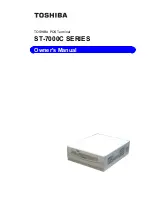
Entering Pseudocode falls into two categories: Entering/placing text on the
screen and everything else. Pseudocodes that have nothing to do with text on
screen are relatively simple. Each bit of information needed to complete a
Pseudocode command is asked for one piece at a time. You can get from
entry to entry with the Tab key or the Enter key. The Enter key causes you
to exit the Pseudocode entry box once everything has been defined. The Tab
key takes you from entry to entry and from the last entry to the first without
exiting the screen. Shift-Tab takes you backwards.On Screen entry allows
you to do even more powerful things. Any command that generates text to be
placed on the screen takes advantage of On Screen Editing. The SCREEN
command allows you to place regular text, large text and huge text at any
location on the screen. When entering text on screen, you are always in
overtype mode. You change text sizes with the Tab key. Once you are done
typing the text to be displayed on the screen, you press Enter and are then
prompted for a name for the screen. Once that is done (and you press Enter
again) you will see that a series of PUT TEXT commands have been
generated. Whenever you are entering a new PUT TEXT command or
editing an existing one, your cursor will be on the screen. You can add or
change text or move it around. To move text, you hold down the Shift key
and then press Cursor keys to move the text to the desired location. Once
you have the proper text on the screen in the proper location, press Enter to
generate the Pseudocode.
Certain Pseudocodes (like PUT NUMBER) allow you to specify numeric
formats for printing numbers on the screen. You may specify a digit place
holder with a # character. Use the decimal point (.) character for specifying
the location of the decimal point. Use a plus(+) or minus (-) sign to specify
the use of a sign. If you want scientific notation, use an E. For example:
##.###
Specifies from 0.000 to 99.999
+#.#
Specifies from -9.9 to +9.9
###
Specifies from 0 to 999
PUT TEXT has the capability to place text from string variables directly on
screen. The actual process to place the variable may seem a little confusing
at first. To place the contents of a string variable with the PUT TEXT
Pseudocode, press F5 followed by P. Select PUT TEXT with the cursor, press
Enter. You are now in “ON SCREEN” text entry (i.e. your cursor is on the
simulated T-60 screen and blinking). Move the cursor to the desired starting
location of the text string. Type a dollar sign ($) followed by Enter. A new
window will appear in the Pseudocode entry area which will ask for the name
of the string variable (a string variable must end with a dollar sign ($)).
Enter the string variable and press return.
Selecting Pseudocode is simple. Pressing F5 displays a list of Pseudocodes
that you can choose. The Pseudocode selection screen displays the
Pseudocode list, the currently selected Pseudocode, and some helpful
information about the currently selected Pseudocode. If you press Enter, you
will go to the entry screen (if one is needed) for the currently selected
Pseudocode. You can use the Up and Down Arrows, as well as the Page Up
and Page Down keys, to scroll through the Pseudocodes. You can also press a
letter key to get to the first command in the Pseudocode list that begins with
that letter. For instance, if you are in the list and press S, you will go to the
SCREEN command location in the Pseudocode list.
ApplicationBuilder
Builder Mode
19
Summary of Contents for T-60
Page 1: ...T 60 Operator s Manual P N 400248 00 Rev A3 Date November1 1995 ...
Page 2: ......
Page 4: ...ii ...
Page 8: ...Table of Contents vii ...
Page 12: ...T 60 Operator s Manual 4 ...
Page 15: ...Figure 3 Mounting Figure 4 Mounting Clips Installation Through Panel Mounting 7 ...
Page 38: ...T 60 Operator s Manual 30 ...
Page 44: ...T 60 Operator s Manual 36 ...
Page 52: ...T 60 Operator s Manual 44 ...
Page 64: ...T 60 Operator s Manual 56 ...
Page 66: ...Figure 21 Physical Dimensions T 60 Operator s Manual 58 ...
Page 113: ...Appendix A List of Figures A 3 ...
















































